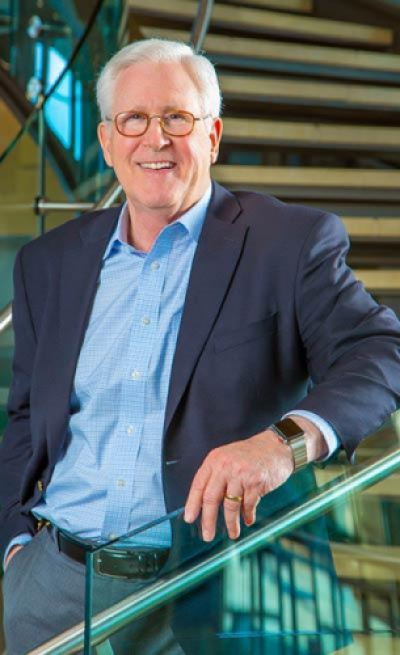Looking to Scripture in a time of pain and division

Over the past couple of weeks, I have reflected and prayed, examining my own heart and mind in light of the weighty — and needed — conversations taking place in this country on racial equality. Not having had the same experiences in life, I know I will never understand the pain and suffering that men, women and children of color in our nation have endured for hundreds of years and continue to experience today.
It’s important to acknowledge that people of color are grieving differently and more profoundly right now, as the pain of yet another inexcusable loss is still very fresh. I’m grateful to the many people on our team at Museum of the Bible who have contacted me to share their own experiences, fears and grief. I look forward to and welcome more conversations like these in the days ahead. In fact, now more than ever it’s time for Americans to talk — and listen — to each other. To look each other eye to eye and share from our hearts and work to find a path toward healing, together.
Still, some of us may feel at a loss for what exactly to do right now. But Scripture reminds us that we shouldn’t have to ponder for too long. In Micah 6:8, we read that God requires three things of us: to do justice, love mercy and walk humbly with him.
We must come together and do those things. I believe that the Bible is a deep well of wisdom that offers us a way forward as individuals and as a country as we work to conquer the sin of systemic racism. In fact, the Bible has historically been a catalyst for justice movements and reforms in our nation.
When Rev. Dr. Martin Luther King, Jr., led the March on Washington in August of 1963 and delivered his famous, “I Have a Dream” speech, he referred to Isaiah 40:4-5: “Every valley shall be raised up, every mountain and hill made low; the rough ground shall become level, the rugged places a plain.And the glory of the Lord will be revealed, and all people will see it together. For the mouth of the Lord has spoken” (NIV). Rev. Dr. King’s bold work for racial equality and for an end to police brutality was informed by his faith and rooted in Scripture. We tell that story in the Museum of the Bible. Indeed, King’s example and the promise of those words in Isaiah are a much-needed salve on the societal wounds that continue to fester today.
I believe history itself can lead us toward a better and brighter future if we heed the hard-learned wisdom of its years. The halls of American museums are lined with reminders of our past — both the good and the ugly.
History is often pared down to the whos, whats, whens, wheres, and — if we’re lucky — the whys of what happened. While these rather cut and dry aspects of history, archeological data, ancient texts and artifacts are certainly part of the fundamental focus of Museum of the Bible, there’s also a transcendent, dynamic and living aspect to our galleries: hope.
Because the Bible, ultimately, is a message of hope.
Harry Hargrave is CEO of Museum of the Bible.




























